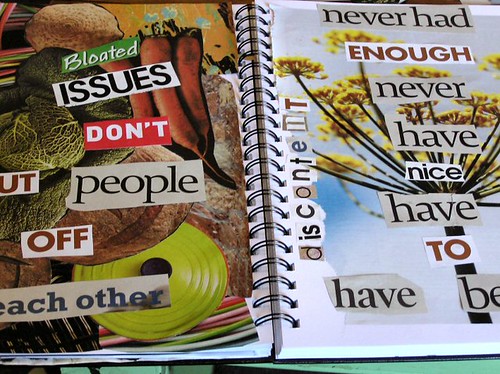 A recent study released last month in the journal Child and Youth Care Forum examined the role participatory storytelling can play in programming for at-risk youth. Specifically, they looked at two things: how storytelling can help program planners evaluate what parts of their programs work best, and how it can help youth in the programs build resiliency and change their lives for the better.
A recent study released last month in the journal Child and Youth Care Forum examined the role participatory storytelling can play in programming for at-risk youth. Specifically, they looked at two things: how storytelling can help program planners evaluate what parts of their programs work best, and how it can help youth in the programs build resiliency and change their lives for the better. The researchers added a storytelling project into a diverse spread of summer programs, and selected an average pool of participants from each program to join the storytelling component. Through assorted creative means, participants were encouraged to tell their own stories and the stories of made-up characters participating in the same experiences they were undergoing in their own programs. Youth engaging in storytelling reported dramatic changes in their levels of risky behavior and striking increases in their sense of optimism about the future. Notably, some of the risk behaviors reduced through storytelling were not shown to be reduced effectively by other methods, such as telling youth that certain behaviors are risky.
I'm not surprised. You probably aren't either if you've ever directed autobiographical storytelling with kids, or led quality reflection activities after a service-learning project, or heard campers at a summer-closing campfire tearfully tell the stories of their best memory at camp.
The reason is that narrating one's own experiences of growth and transformation solidifies those experiences. People learn from reflecting on experiences just as much as they learn from the experiences themselves. Reflection, narration and storytelling tie the pieces together, and solidify them through articulation. The creative action of telling one's own story, or someone else's, has been shown to be empowering and transformative, time and time again.
My only concern reading this study would be whether youth might tell stories of their own positive transformations or goals for the future because they sense that's what the adults want to hear. I don't think that's the case in this study, given that some of the statements were strongly personal in nature, but it would be worth further research. Kids and youth, whether in a classroom or program, are intuitive when it comes to questions we ask; they know there's an answer we want to hear, but they also get comfortable over time, and are frank about what they feel.
And it's that frankness that's essential to and empowering about storytelling. Telling youth to behave differently, or telling them who they are isn't especially useful or empowering, but creating a space for youth to tell their own stories enables them to tell us what works, and to make it happen with our support.
Thanks to pupski for the Creative Commons photo.



2 comments:
Great Post,
Thanks for sharing this wonderful information with us.
:)
Student of child and youth worker program at Canadian college
Could story telling be that effective in helping at-risk youth? I doubt that it would be effective to all at-risk youth in the program. Is their other ways you know that could possibly be effective to most at-risk youth?
Post a Comment